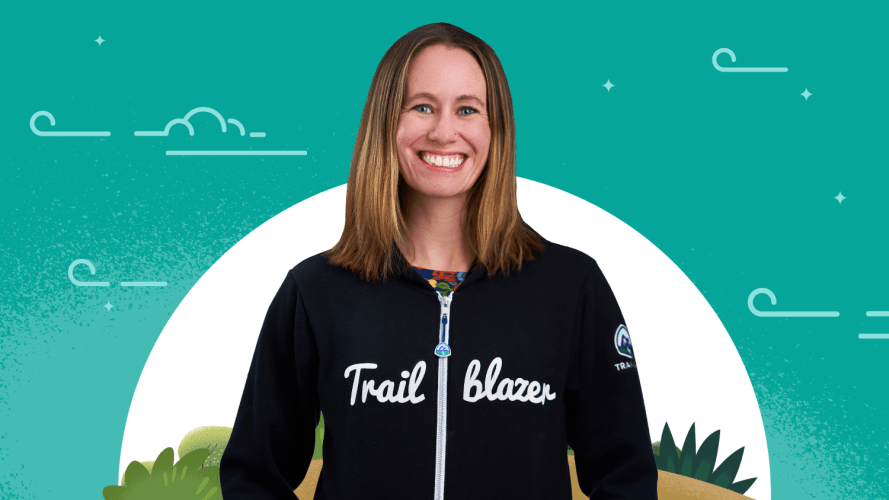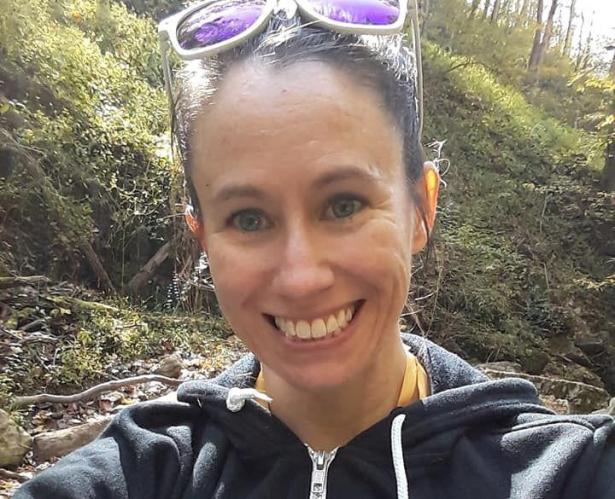3 Ways Generative AI Will Help Marketers Connect With Customers
3 min read




From being a radio host to working at a call center, in sales, and now as a Senior Salesforce Admin, I’ve had quite a career journey. There were times when I thought I’d never find a career and culture where I could be happy as my whole self, including openly sharing my bipolar diagnosis and experience.
When I found Salesforce and the ecosystem, I realized it was just the opportunity I’d been searching for: a career and culture where I could be fully me. Along this journey, I’ve discovered a few practices that have helped me make strides in both my personal and professional life.
Here are the top four ways I set myself up for success to thrive in my career and life.
Throughout my life, I could see the signs of my bipolar disorder. I experienced a few mental breakdowns — one in high school and then in early adulthood, where I ended up in a hospital. They prescribed medication to help calm me down. But this didn’t help address my underlying condition of having bipolar disorder. I knew something more was going on, but I just wasn’t getting the right help from the right people who could give me the correct diagnosis.
When you’re going through something, whether that be a physical or mental health issue or life event, it’s important to have a trusted support system. When I finally received my bipolar diagnosis and a psychiatrist prescribed the right medication for it, I began to experience some relief.
I’ve also found support in the Salesforce ecosystem. When I was hired at my current company, I was able to slowly share more about my diagnosis. It began with being transparent about my medication and its side effects. It made me very tired and sleepy. I was brand new to the job, and I didn’t want my team to misinterpret my actions or lethargy as a lack of enthusiasm for the role. So I decided to be up-front and honest.
Eventually, I opened up about my diagnosis. It was something that I knew was a risk to share. But I went into the interview and hiring process knowing more about the company because I was referred by a trusted friend who had great things to say about the culture.
But this choice to share something like a mental illness diagnosis or other issues you’re going through is always going to be a risk. So it’s essential to get a feel for the culture and make sure you feel safe to share this kind of information.
Although I now work as a Senior Salesforce Admin, I didn’t start out in this position or even in the admin field at all. Initially, I worked at a call center and then in a sales position at my current company before transitioning to the admin role. Even though I knew these initial positions were not my ideal roles, I committed to them as a part of my larger career journey. And both helped me prepare for my next opportunity.
I discovered Salesforce while working as a customer service representative. I found my way to this position after being laid off from a decade-long career in radio during an economic downturn. I was fascinated and impressed with how the company used Service Cloud for customer support. It was a well-oiled machine carrying information from one department to the other.
When I joined my current company in sales, I saw variations in how they used Salesforce capabilities compared to where I was previously. Each department used Salesforce differently. There just wasn’t a lot of architectural thought put into using it as a customer relationship management (CRM) tool. They weren’t logging key information about customers, including sales opportunities, and there wasn’t a case system to help account managers with the operations team.
I started dropping by and suggesting tweaks to the admins, made up of team members doing admin part-time on top of their full-time jobs. I alerted them to duplicative features and streamlined fields in forms to help capture the most relevant information. It was a fun learning and growth challenge that motivated me to dive further into Salesforce.
Once I joined operations, I took my learning further with Trailhead—Salesforce’s free online learning platform.
When I was officially hired as a Salesforce Admin, I began to study for my Salesforce Administrator and Advanced Administrator certifications. I used key modules and trails like Admin Beginner to get a more in-depth picture of the admin role.
I also found Trailblazer Virtual Bootcamps very helpful in accelerating my learning journey and helping me pass my Salesforce Administrator and Platform App Builder certifications. I built my bootcamp study and preparation time into my morning routine.
Routines also help me in my day-to-day, both personally and professionally. To help me with my mental illness, I set up a routine that gives me stability—regular exercise, mindfulness activities like yoga, and eating healthy, nourishing foods. And at work, I use checklists to troubleshoot issues in Salesforce and defined processes to build out features and workflows.
If you’re feeling stuck in your career or struggling with a mental health issue, you are not alone. It’s important to never give up on yourself. This means committing to continual growth and learning, carving out routines to support you along the way, and tapping into your support system when you need help and encouragement.
Knowing how much having a trusted support system has helped me, I’m now paying it forward. I recently formed the Mental Health & Illness Community Group — the next logical step after creating this buzz around mental illness in the Trailblazer Community.
The Trailblazer Community ties many of us together, but we’re so closed off about our mental health that we aren’t connecting with each other around this important issue. I’m not the first to stand up and talk about my mental illness, but I hope to be the loudest.
With this new Community Group, I want Trailblazers to know it’s okay to talk about your mental illness and mental health. Only by talking about it can we normalize the conversation, find the support we need, and end the mental health stigma. Nobody has to post anything they don’t want to, and the group is private. You have to request to join to protect our members.
Our Community Group will also host virtual events where we’ll hear from therapists, motivational speakers, advocates, and Trailblazers who want to share their stories. I plan to have group meetups at Dreamin’ events, Salesforce events, and all the places Trailblazers come together.
My greatest aspirations for this community are to help people, create change, and end the mental health stigma.
Some additional mental health support and education resources I suggest:
nami.org
thetrevorproject.org
988lifeline.org
Discover expert insights to help you develop your career, connect with Trailblazers, learn Salesforce, and earn certifications. Explore practical how-to guidance, authentic peer perspectives, and inspiring Trailblazer stories.




Get the latest articles in your inbox.


